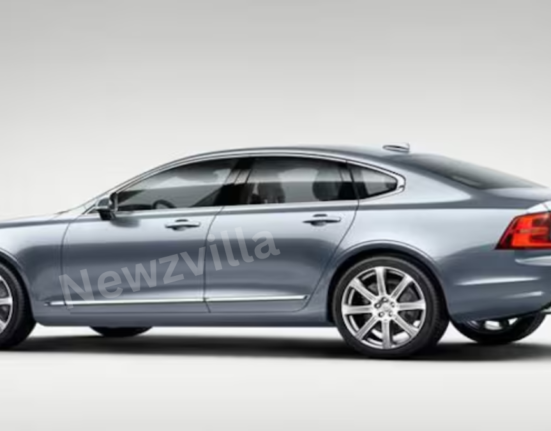Swedish luxury brand Volvo expects slower adoption but believes EVs will be the fastest growing segment and hopes to have a big share of it
Volvo Cars remains steadfast in its commitment to transition entirely to electric vehicles. By 2030, the brand aims to exclusively offer electric models and achieve carbon neutrality by 2040. Leading up to this goal, Volvo affirms its unwavering stance against reverting to internal combustion engines, even if the progress of EV infrastructure lags behind. This raises the question: will Volvo apply the same bold electrification strategy to the Indian market, where electric vehicles are just beginning to gain traction, as it does globally?

Last week, Jim Rowan, CEO of Volvo Cars, and Björn Annwall, Chief Commercial Officer and Deputy CEO, engaged with businessline at the company’s headquarters in Sweden. While Volvo is renowned for its safety-focused luxury passenger cars, it faced challenges in India during the pandemic. However, the brand has successfully rebounded and introduced the XC40 Recharge, an electric compact SUV based on the XC40 platform. In the third quarter of 2023, Volvo India is set to unveil the new C40 Recharge. Local assembly of the XC40 in India in semi-knocked down form has contributed to maintaining competitive pricing. Presently, the product lineup features a blend of internal combustion engine (ICE) and electric vehicles (EVs), with a transition towards an increasing focus on EVs in upcoming releases. Could the gradual shift pose a challenge due to the slower development of EV infrastructure?
Björn Annwall emphasizes, “In the global premium car market, we hold a mere one percent share. This positions us as a specialized brand, not aiming to please everyone. While some regions may be slower to embrace electrification, we prioritize excelling in electric vehicles. Our market share might be lower in countries like India due to the gradual shift. Though this choice may limit our relevance in some segments, we focus on the rapidly expanding electric market, aligning with our strategic direction. Our emphasis remains on premium growth, achieving full electrification by 2030, transitioning to software-defined vehicles, and enhancing the online experience seamlessly—all while maintaining sustainability. While volatility may arise in the short term, a clear strategy is crucial during such phases.”

Electric vehicles (EVs) are susceptible to cost inflation and higher tariffs. Therefore, in a market like India, is a semi-knocked down (SKD) assembly operation a disadvantage compared to a completely knocked down (CKD) assembly? Furthermore, does the relatively low sales volume eliminate the possibility of a larger CKD assembly operation? Considering Volvo’s ownership by the Chinese conglomerate Zhejiang Geely Group, which boasts 15 other brands in its portfolio, could a local partnership be a viable option?
Jim Rowan stated that their current operations in India focus on a semi-knocked-down assembly process. The decision to establish a facility in Slovakia was strategic, aiming to align production capacity with the anticipated demand from the European market. By the end of 2026, the planned expansions at the Slovakian facility will boost their electric vehicle (EV) production capacity to 250,000 units initially, with the potential to scale up to 500,000 units annually. While the demand in countries like India and Malaysia is comparatively lower, setting up dedicated manufacturing plants for these markets might not be feasible. Instead, leveraging the Indian facility to serve multiple countries is being explored, considering factors like cost-effectiveness and logistical efficiency versus other locations in Asia. The company is contemplating the idea of establishing another manufacturing site in Asia besides China, potentially in collaboration with a partner within the Geely group, aligning with their global expansion strategy. However, a final decision on this matter is yet to be reached.
Also Read: Volvo Car India reorganizes its management team.

Expanding on this potential, Annwall emphasizes, “The Geely ecosystem offers a favorable environment. Here, each brand and company autonomously shapes its destiny, fostering collaboration without coercion. Any collaboration must yield mutual benefits, whether involving procurement, vehicle architecture sharing, or battery sourcing. This approach intelligently organizes a consortium within an industry experiencing significant transformation.”
“Finding the right production sources becomes tricky, especially when sustainability is non-negotiable. It’s impractical to set up factories on every continent for a specialized car. Instead, the focus should shift towards localized supply chains,” stated Annwall.








Leave feedback about this